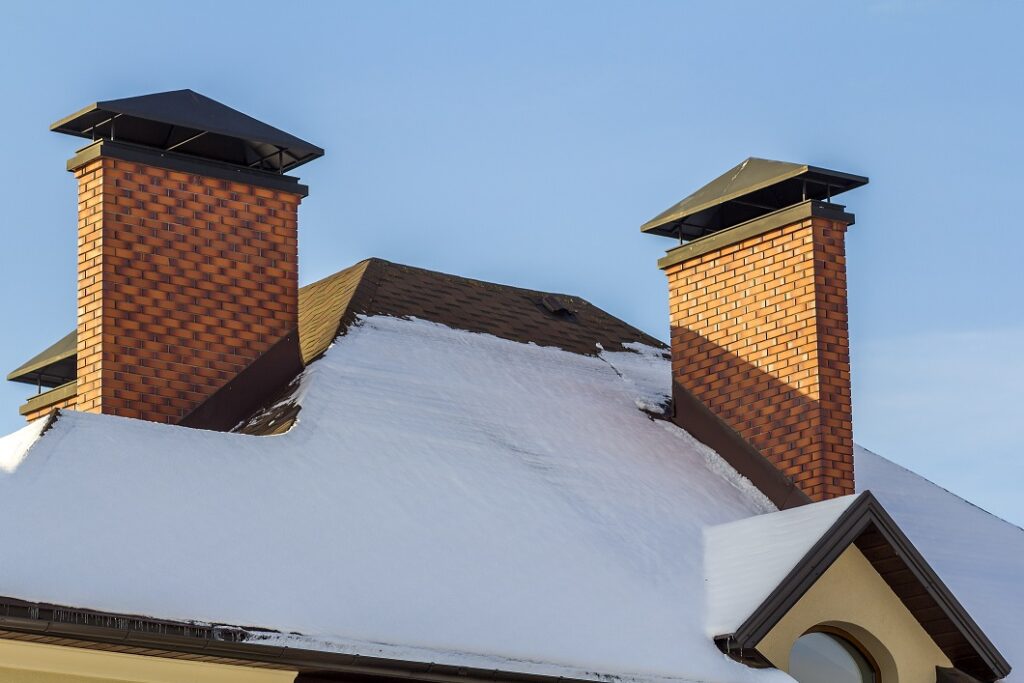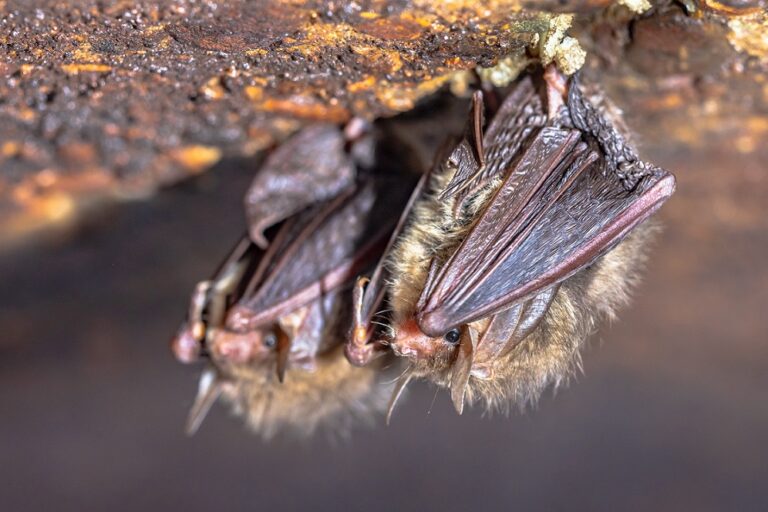
August 24, 2022
Is It Bad To Have Bats In Your Chimney?
While bats are considered to be beneficial to the environment, having them in your chimney and home is anything but pleasant.
Typically, chimneys can be a way for bats to get in by mistake. This wildlife can accidentally enter your house through the chimney. Whatever the case, there are multiple issues and dangers associated with having bats in the chimney and you should therefore deal with the infestation as soon as possible.
Bats can cause serious annoyance and a real danger to your chimney. Many bat species tend to colonize, and the chimney is a great place for bats to build their nest. The nesting material can go up flames when a fire is burning in your fireplace and cause a chimney fire if not taken care of immediately.
When bats roost in chimneys, their urine and droppings accumulate on roof shingles and bricks. This results in a musty odor and dirty runoff when it rains.
The whole house will start to smell, making it unbearable to live in.
Bats living in the chimney also create unsightly, dark, greasy stains that look similar to those left by rodents.
If you spot a bat trapped in your chimney, you should not touch or go near it, even when it’s dead. Bats are dangerous animals as they spread numerous diseases that can be deadly to humans. Whenever bats live near humans, there is a high risk of contracting rabies from their bite. Even a dead bat may carry the disease.
In addition, bat urine and droppings can also be harmful to the health of those who live in the house. Airborne spores that develop in guano, i.e. bat feces, can transmit Histoplasmosis to people.
Can Bats Get In Through The Chimney?
Bats can quickly fly down and up the chimney. If you go outside and watch their flight direction, you may see them heading out to feed at dusk or getting back at dawn.
These pests will infest homes by slipping around metal flashing around the chimney. They have the ability to fit into very small openings and can enter the chimney through a gap as small as 3/8 of an inch.
If you have bats in your chimney chances there is likely some damage to the chimney or a missing cap in the structure. Bats tend to enter chimneys through loose mortar joints or tuck points.
The chimney is a convenient place for bats to find entry into your home. As you probably don’t have a fire burning in your fireplace 24/7, these mammals will easily access the interior of your home.
The chimney is a logical path to choose as its structure is basically a large passageway that leads from your home’s warm interior to the cold outside world. The protected shaft provides a safe haven for wildlife to build nests and a quiet place for them to shelter from the elements. However, bats roosting in the chimney is bad news for you.

Do Bats Roost And Live In Chimneys?
Typically, bats are found living in attics and crawl spaces, but it is very common to encounter them living inside chimneys as well.
Bats love to live in the chimneys of residential and commercial buildings. Chimneys can be a great home for critters as they offer all of the roosting requirements for bat colonies. They are dark and secluded, and give enough space for them to hang upside down.
The shelter and warmth of the heat coming up from your house through the chimney makes it a very attractive nesting area.
These animals generally enter chimneys to reproduce and hibernate. Female bats particularly need a warm and safe place in which to raise their young. Therefore, if you have a maternity colony of bats living in your chimney, it can mean a long-lasting problem for your home. This wildlife has strong homing instincts and usually returns to the same roosting site to breed every season.
How To Tell If You Have Bats In Your Chimney?
There are some signs that indicate that you have bats living in your chimney.
Do an inspection to find out exactly where the bats are going in and out. They tend to choose small horizontal openings. If you do a night watch, you might observe the bat swarm flying out of areas near your chimney around dusk or dawn. This is when they are leaving as a group or are returning as a group.
Bats make distinctive sounds in the chimney, which can differentiate them from birds or other wildlife. You may hear high-pitched squeaking, cheeping, and rapid wing movements coming from inside the flue. These sounds are particularly noticeable at dusk and dawn when they are awake and moving around.
Bat droppings can be found around the inside and outside of the chimney. You might smell a strong, unusual ammonia-like odor that’s similar to a dirty litter box.
What To Do If You Have Bats In Your Chimney?
If there are bats infesting your chimney, various methods can be helpful.
First of all, it is important to block their entry by sealing all entrances except one and then installing exclusion tubes. This is a device that is a one-way exit so that the bats can fly out but can’t get back in.
Placing wire mesh screens over a chimney deters bats from roosting, however, make sure you don’t accidentally trap any animal inside.
Chimney caps are another easy method to keep bats and other forms of wildlife from gaining access to your home. Galvanized steel is the best option for sealing holes around chimneys.
Lastly, remember to never attempt to remove a bat from your chimney yourself. Always seek the help of a licensed professional.
If you believe you have unwanted guests in your chimney, don’t panic. Bats in chimneys do not have to be a headache.
At Westchester Wildlife, our experts understand the risks associated with bat removal and know how to safely, humanely, and legally remove these pests from chimneys. Call us today to schedule a consultation or to learn more about our bat removal services in Westchester, Dutchess, and Putnam Counties, NY, or in Fairfield County, CT.
Two brown hibernating bats
